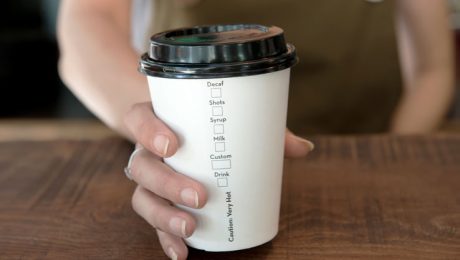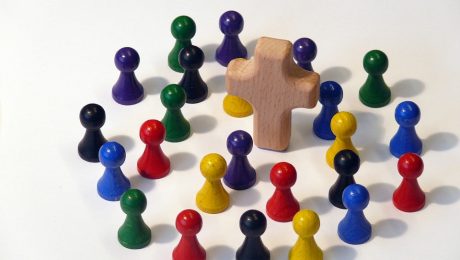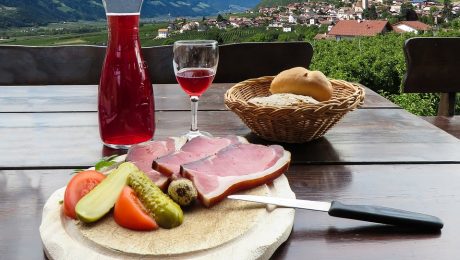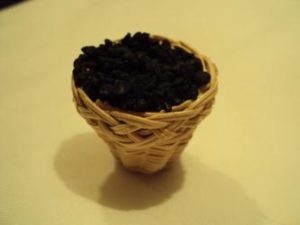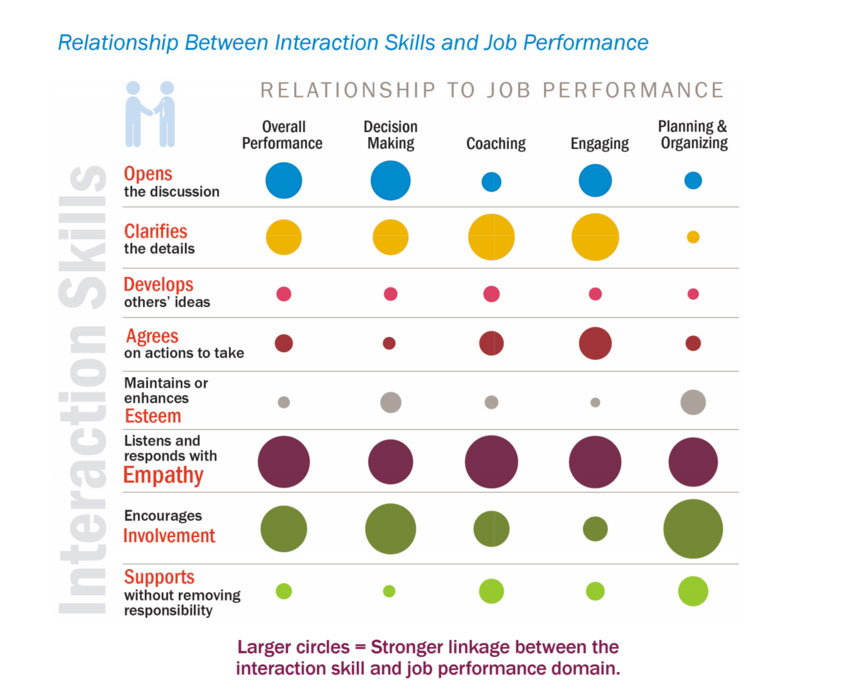To Drink or Not to Drink: By Norman Geisler
A Sober Look at the Question
The Main Points
- The Bible condemns using strong alcoholic beverages and drunkenness.
- In Bible times, they used light alcoholic beverages in moderation.
- Today, given the many harmful results of alcohol and the many non-alcoholic alternatives, total abstinence is the best policy.
Many Reasons Not to Drink (or use other addictive drugs)
- It is Condemned
- The Bible Condemns Strong Drink as a beverage.
- Today’s Beer and Wine are Strong Drink.
- Hence, Today’s Beer and Wine are Condemned by the Bible as a beverage.
- We Should not do What God Condemns.
- Therefore, we should not drink today’s beer and wine as a beverage.
Bible Condemns Intoxicating Drinks
“Wine is a mocker [yayin], intoxicating drink [shekar] arouses brawling, and whoever is led astray by it is not wise” (Prov. 20:1).
“Do not look on wine [yayin] when it is red, when it sparkles in the cup, when is swirls around smoothly. At last it bites like a serpent, and stings like a viper” (Prov. 23:31-32).
“Who has woe? Who has sorrow? Who has strife? Who has complaints?…Those who linger over wine (Prov. 23:29-30).
“Give strong drink [shekar] to him who is dying…” (Prov. 31:6).
“Woe to those who rise early in the morning, That they may follow strong drink; Who continue until night till wine inflames them” (Isa. 5:11).
“Strong drink is bitter to those who drink it” (Isa. 24:9).
“Woe to men valiant for mixing strong drink” (Isa. 5:22).
“But they [the priests and prophets] have also erred through wine, And through strong drink are out of the way” (Isa. 28:7 cf. 56:12).
Only false prophets say: “I will prophesy to you of wine and strong drink” (Micah 2:11).
“Do not drink wine (yayin) or intoxicating drink (shekar), you, nor your sons with you, when you go into the tabernacle of meeting lest, you die” (Lev. 10:9 NKJV).
“When a man or a women makes a special vow, the vow of a Nazirite, to dedicate himself to the Lord, he shall abstain from wine yayin) and strong drink” (shekar) (Num. 6:2-3 NASB).
To Samson: “Now drink no wine or strong drink…” (Jud. 13:7).
To Kings: “It is not for kings, O Lemeul, It is not kingd to drink wine, Nor for princes strong drink” (Prov. 31:4)
To all Israel (in the wilderness): “You have not drunk wine [yayin] or strong drink [shekar]; that you may know that I am the LORD your God” (Deut. 29:6).
Note:
1) Total abstinence from strong drink was God’s norm for all believers;
2) Total abstinence from all wine was the ideal for all believers, and
3) was exemplified by spiritual leaders
Drunkenness is Not the Only Reason to Abstain from Alcohol
- It slows the thinking process (Prov. 31:4-5).
- It makes one dizzy (Job. 12:25).
- It is associated with self-centeredness (Hab. 2:5).
- It causes sickness (Jer. 25:27).
- It causes forgetfulness (Prov. 31:6-7).
- It produces delirious dreams (Prov. 23:33).
- It results in sleepiness (Gen. 9:20-25).
- It produces complacence and laziness (Zeph. 1:12).
- It numbs one’s feelings (Prov. 23:31-35).
- It leads to poverty (Prov. 21:17).
- It leads to brokenness (Jer. 23:9).
- It results in sadness and depression (Isa. 16:9-10).
- It causes sorrow (Prov. 23:29-30).
- It produces blackouts (Gen. 19:33-35).
- It leads to immorality (Joel 3:3).
- It encourages sexual perversion (Hab. 2:15).
- It results in guilt (Isa. 24:20).
- It causes injuries (Prov. 23:35).
- It can result in insanity (Jer. 51:7).
- It makes one vulnerable to his enemies (1 Sam. 13:28).
Beer and Wine are Strong Drink
Biblical wine was fermented but diluted 3 to 1.
Jewish Talmud: Passover wine was 3 parts water to 1 part of wine (Pesahim 108a cf. Shabbath 77a)
Inter-testamental Period: “It is harmful to drink wine alone, or, again, to drink water alone, while wine mixed with water is sweet and delicious…” (2 Mac. 15:39).
Some Pagan Mixtures:
Homer: 20 to 1
Pliny 8 to 1 (See Stein, “Wine Drinking in NT Times” Chirstianity Today, 6/20/75).
At 3 to 1 ratio it took 22 glasses of NT wine to get drunk
It was basically a means to purify and sweeten water.
Ancient Wine Mixing With Water “In ancient times wine was usually stored in large pointed jugs called amphorae. When wine was to be used it was poured from the amphorae into large bowls called kraters, where it was mixed with water…. From these kraters, cups or kylix were then filled” (Stein, “Wine-Drinking in NT….”
Taking Unmixed (Today’s) Wine Was Considered Barbarian by Pagans!
Mnesitheus of Athens said: “Mix it half and half, and you get madness; unmixed, bodily collapse”!
Early Church Father Cyprian: “Thus, therefore, in considering the cup of the Lord, water alone cannot be offered, even as wine alone cannot be offered” (Epist. 62.2.11)
Clement of Alexandria added: “It is best for the wine to be mixed with as much water as possible…” (Instructor 2.2).
- It is Condemned
- The Bible Condemns Strong Drink as a beverage.
- Today’s Beer and Wine are Strong Drink.
- Hence, Today’s Beer and Wine are Condemned by the Bible as a beverage.
- We Should not do What God Condemns.
- Therefore, we should not drink today’s beer and wine as a beverage.
- It is Deadly
- We Should not take what is Deadly.
- Taking Alcohol is Deadly.
- Hence, we should not take Alcohol.
Evidence that taking Alcohol is Deadly
- It causes more deaths than any other drug (about 200,000 per year).
- It is responsible for 70% of drownings & chokings.
- It is involved in 50% of all “freak accidents.”
- It causes some 27,000 deaths a year by liver disease.
- 30% of all suicides are alcohol related.
- 20% of all airplane crashes are alcohol related.
- 50% of all murders are drunk when they kill.
- 50% of all fire deaths are alcohol related.
- It causes about a third of all traffic deaths (It would be higher, if blood test were given to the dead too). (Statistics are based on US government reports)
III. It is Dangerous
- We Should Not do What is Dangerous to Society.
- Drinking alcohol is Dangerous to Society.
- Hence, We Should not Drink Alcohol.
Evidence that drinking Alcohol is Dangerous
- It contributes to more deaths than any other drug.
- It leads to drug addiction (18 mill in US=8.5% of population).
- It is involved in both spouse and child abuse.
- It contributes to mental and physical diseases.
- 45% of the homeless are alcoholics.
- It causes 500,000 injuries per year.
During Prohibition (1920-1933): social ills decreased!
Cirrhosis dropped 66%
Insanity decreased 60%
Arrest for drunk and disorderly conduct decreased 50%.
Spouse and child abuse dropped to an all-time low.
Addiction & consumption decreased for 55 years (up to 1975).
- It is Addictive
- We Should Avoid Addictive Drugs.
- Alcohol is an Addictive Drug.
- There are 16 million addicts in the US.
- Alcoholics outnumber all other addicts.
- 77% of high schoolers use alcohol.
- 29% of high schoolers drink heavily.
- 44% of 8th graders drink.
- 1 in 10 social drinkers will become addicts
Question: Would you get on an airplane if there was a 10% chance it would crash?
- We should avoid alcohol.
- It is Unhealthy
- We Should Avoid Drinking What is Bad for our Health.
- Drinking Alcohol is Bad for our Health.
- So, We Should Avoid Drinking Alcohol.
Proof that drinking Alcohol is Bad for One’s Health
- It is the number three health problem.
- It results in 1/2 million hospital admissions.
- It impairs the function of vital organs.
- It causes liver diseases.
- It contributes to heart attacks.
- It increases the chances of cancer 3-6 times.
- It is the number three cause of birth defects.
- It can cause insanity.
- It can injure the nervous system.
- It can cause impotence and sterility.
It is Unhealthy
- We Should Avoid Addictive Drugs.
- Alcohol is an Addictive Drug.
- So, We Should Avoid Alcohol.
- It is Costly
- We Should Not Do What is Unnecessarily Costly to Society.
- Drinking Alcohol is Unnecessarily Costly to Society.
- Hence, We Should Not Drink Alcohol.
Evidence that alcohol is Unnecessarily Costly
- Special services $7 billion a year.
- Medical services $19 billion a year.
- Loss of future earnings by death is $37billion.
- Alcohol related illness is $86 billion.
- Fetal alcohol syndrome is $1 billion.
- Loss of earnings of crime victims $10 billion.
- Crashes, fires, and crime is $24 billion.
- Total cost of alcohol abuse is over $184 billion.
VII. It is a Bad Example
- We Should not be a Bad Example.
- Drinking Alcohol is a Bad Example.
- Hence, We Should Not Drink Alcohol.
Note:
1) Children are imitators, and if we take addictive drugs, then they will imitate us.
2) They won’t do what we say but what we do.
3) We won’t convince them to stop their drugs until we stop using our drug (which is worse).
VIII. It is not Edifying
- What is not Edifying Should be Avoided.
- Drinking Alcohol is not Edifying.
- Drinking Alcohol Should be Avoided.
Paul wrote: “All things are lawful, but all things are not helpful. All things are lawful, but all things do not edify (build up). All things are lawful, but I will not be brought under the mastery of any”(1Cor. 6:12).
- It Causes Others to Stumble
- What Causes Others to Stumble Should be Shunned.
- Drinking Alcohol Causes Others to Stumble.
- So, Drinking Alcohol Should be Shunned.
Paul said: “It is good neither to eat meat nor to drink [diluted] wine, nor anything by which your brother stumbles…”(Rom. 14:21).
Of course, strong (undiluted) wine is forbidden.
- It is Unnecessary
- We Should Avoid Doing Harmful Things That Are Unnecessary.
- Drinking Alcohol is a Harmful Thing That is Unnecessary.
- We Should Avoid Drinking Alcohol.
Note: We have plenty of good drinks that are not as harmful–water, milk, fruit juices, coffee, tea, and others.
Conclusion
- Even one good reason is a good reason not to drink alcohol.
- Two or more reasons are very good reasons not to drink it.
- Ten reasons are overwhelmingly good reasons not to drink it.
Hence,
1) We encourage all Christians not to drink it.
2) We require all church leaders not to drink it. (Not because it makes you more spiritual but because it manifests your commitment and maturity
If God Didn’t Want Us to Drink It, Why Did He Make it?
- It is a sedative (Prov. 31:6): “Give beer to those who are perishing, wine to those who are in anguish.”
- It revives the faint (2 Sam. 6:2): “The donkeys are for the king’s household to ride on, the bread and fruit are for the men to eat, and the wine is to refresh those who become exhausted in the desert.”
- It is an antiseptic (Lk. 10:34): “He went to him and bandaged his wounds, pouring on oil and wine. Then he put the man on his own donkey, took him to an inn….” took care of him.”
- It is a laxative (1 Tim. 5:23): “Stop drinking only water, and use a little [diluted] wine because of your stomach and your frequent illnesses.”
Answering Some Objections
Objection 1: The Bible only condemns drunkenness, not taking strong drinks.
Answer: Not so. One of the reasons it condemns strong drink is because it leads to drunkenness, but it is not the only reason. Strong drink itself is condemned.
It is also addictive and harmful in many other ways (physically, emotionally, psychologically, and socially).
Objection 2: Doesn’t the Bible actually commend using strong drink as a beverage in Deut. 14:26: “And you shall spend that money for whatever you heart desires: for oxen or sheep, for wine [yayin] or strong drink
[shekar], for whatever your heart desires; you shall eat there before the LORD your God, and you shall rejoice with your household.”
Answer:
1) OT condemns strong drink as a beverage (see X).
2) Unclear texts like these should not be used to contradict clear ones.
3) It was bought in strong (undiluted) form for ease in travel and storage, and for use as a medicine–not to drink as such.
4) Whatever drinking they did was in diluted form (see I).
5) In whatever form, the use here was specifically for a Jewish festival and is not a norm for general consumption.
Objection 3: It is legalistic to make extra-biblical laws like total abstinence which the Bible does not make.
Answer: It is not extra-biblical since the Bible condemns “strong drink,” and today’s alcohol drinks are “strong drink.”
Further, not every extra-biblical rule is legalistic–only those used as a condition for meriting God’s grace, whether for getting justification or sanctification.
Objection 4: The Bible says it is OK to take a “little” wine (1 Tim. 5:23) as long as it is not too “much” (1Tim. 3:8); It does not teach total abstinence.
Answer: It is speaking about a “little” and not “much” diluted wine [Hb.: yayin], not the undiluted intoxicants [Hb.: shekar] such as wine, beer, and whiskey which people drink today. We should totally abstain from these.
Objection 5: What about nicotine and gluttony? Aren’t they addictive and destructive too.
Answer: Yes, but we must eat food to live, but we do not need to drink alcohol to live.
Nonetheless, Christians should avoid all nicotine (since it causes cancer) and all gluttony (since obesity is harmful to one’s health).
Objection 6: What about studies which show that regular use of alcohol helps prevent heart disease (by increasing good cholesterol)?
Answer:
- They have shown a statistical connection, not a causal one. It is also known that “statistics lie, and liars use statistics.”
- It may be due to antioxidants present, not the alcohol.
- Other studies show grape juice has similar results.
- Even the statistically favorable studies admit there may be other genetic and environmental factors at play.
- The American Heart Association does not recommend it.
- There are other non-alcoholic methods, such as diet, exercise, and non-addictive drugs that can be used.
- The end doesn’t justify the means–if they are wrong (e.g., stem cells from abortion or alcohol for pregnant women’s hearts).
- It is a fact that non-drinkers live longer (52% vs. 40% live to 75+).
Objection 7: It makes me relax and feel better.
Answer: Don’t make your happiness depend on addictive drugs. It is both deceptive and dangerous.
If you want a high without a hangover: “Do not be drunk with wine in which is excess; but be filled with the Holy Spirit” (Eph. 5:18).
Objection 8: I need it for my nerves.
Answer: There are non-addictive diets and drugs that can help your nerves.
Better yet–try God’s plan: “Be anxious for nothing, but in everything by prayer and supplication with thanksgiving, let your requests be made known to God, and the peace of God which passes all understanding will keep your heart and mind through Christ Jesus”(Phil. 4:6-7).
Total Abstinence is the Best Policy
No one ever had the following alcohol related consequences who refused the first drink:
No one ever got drunk without the first drink,
Nor got an addiction to it w/o the first drink,
Nor got a disease from it including: heart attacks, cirhossis, insanity,
Nor engaged in spouse or child abuse DUI of it,
Nor killed anyone in an accident DUI of it,
Nor caused any debt or injury DUI of it,
Nor caused anyone to stumble in their faith!
The Main Points
- The Bible condemns using strong alcoholic beverages and drunkenness.
- In Bible times, they used light alcoholic beverages in moderation.
- Today, given the many harmful results of alcohol and the many non-alcoholic alternatives, total abstinence is the best policy.
No Temptation is Too Strong!
“No temptation has overtaken you except such as is common to man; but God is faithful, who will not allow you to be tempted beyond what you are able, but will with the temptation also make the way of escape, that you may be able to bear it” (1Cor. 10:13).





